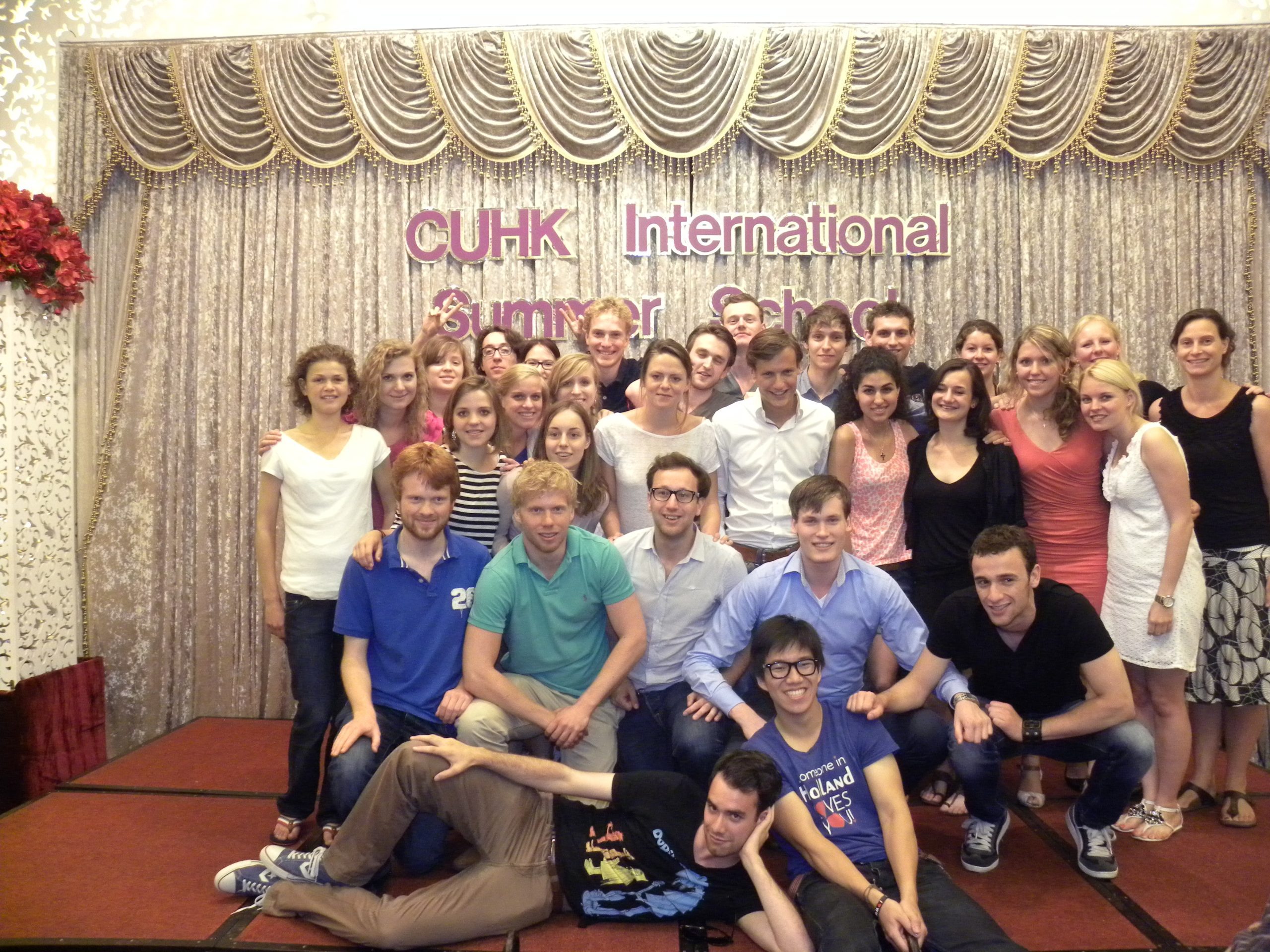Two students from TU Delft get a crash course in what makes China a force to reckon with.
This summer, 30 students from across the Netherlands, travelled to China for the Netherlands-Asia Honours Summer School 2012.
An exchange programme initiated by various governmental ministries, multinational companies and Dutch universities, it aimed at strengthening academic and business ties between the two nations. Selected students attended five-week long summer school courses at the Chinese University of Hong Kong and interacted with business big wigs during their stay. Two of the students selected from close to 180 applicants were TU Delft BSc students Stéphane Jager (21) and Adriaan Bovendeert (21).
“The Netherlands is an important business partner for various Asian countries, but not enough students travel to Asia. The Summer School was an attempt to understand how to change this. During our stay there, besides the academic courses we took, we had to solve a case study on how we could create more interest in Asia among Dutch students,” says Bovendeert, a third-year Industrial Design Engineering BSc student.
Getting selected for the programme was no piece of cake. “We first had to submit our resumes, a motivation letter and our grades. After that there was a pre-selection round by each university and a final selection committee with representatives from Utrecht University, TU Delft, SER, AkzoNobel and McKinsey. Only two or three students per university were selected,” says Jager, a third year BSc Mechanical Engineering student.
Being in China was more of a learning experience than they could have imagined. Besides classes, they had business meetings with representatives of companies with European interests. “To have that kind of interaction with China, as a place and a business hub, in such a short time would have been impossible under any other circumstances,” says Jager, adding that “it gave us new insights into how China has grown from being a developing Communist state into one of the strongest economies in the world. In fact, the IMF predicts that by 2016 China will be the biggest economy in the world.”
Although Bovendeert had visited Taiwan and Nepal previously, this visit gave him a chance to witness Asia from a professional point of view, and experience its educational system. “I’m certain that this programme will expand my career opportunities. During my stay in Hong Kong, I was offered an internship at a Chinese company, and I interacted with the office of the Shanghai Design Workspace. I’m not sure how I will incorporate everything I learnt into my current study, but I’m sure I will,” says Bovendeert, who is currently finishing a project in Sweden.
Thankfully, it wasn’t all work. Tourism was also prominent on the agenda. Besides mapping all of Hong Kong and Shanghai, Jager also visited Macau. “It’s often called the Las Vegas of China, as it’s the only city in the country where casinos are allowed. In fact, a copy of the Venetian Casino Hotel there has a higher yearly revenue than the actual one in Las Vegas,” he adds. Bovendeert also managed a trip to Taiwan and caught up with an old friend there.
With the initiative set to become an annual feature, both students are proud to be its ambassadors. They believe that such initiatives are great at fostering long-term relationships. “During such a course, you build a relationship with your peers and understand the attitude one requires to network on different international platforms,” says Bovendeert. “Not only did we form strong business networks, but also great personal equations. In fact, two of my fellow participants will visit me this December,” says Jager, who is currently studying at Fudan University in Shanghai.



Comments are closed.